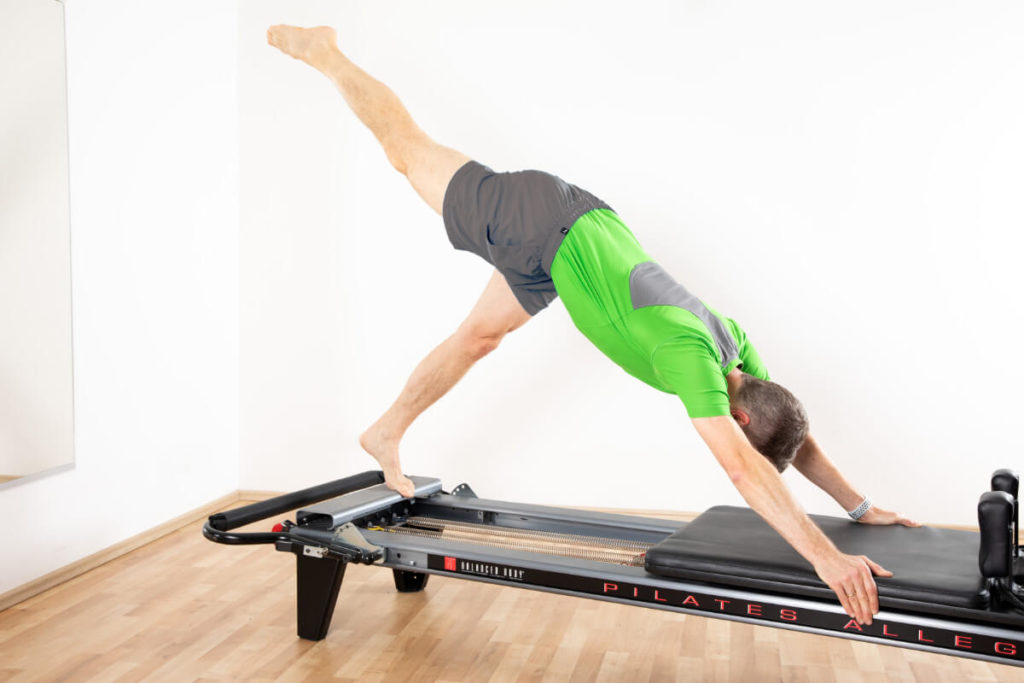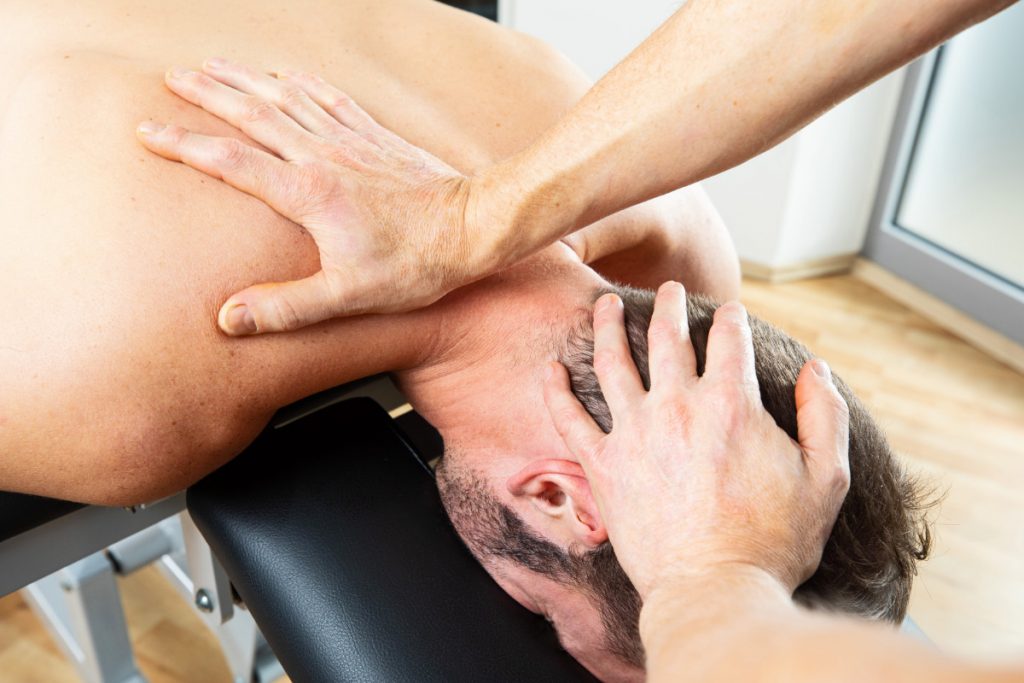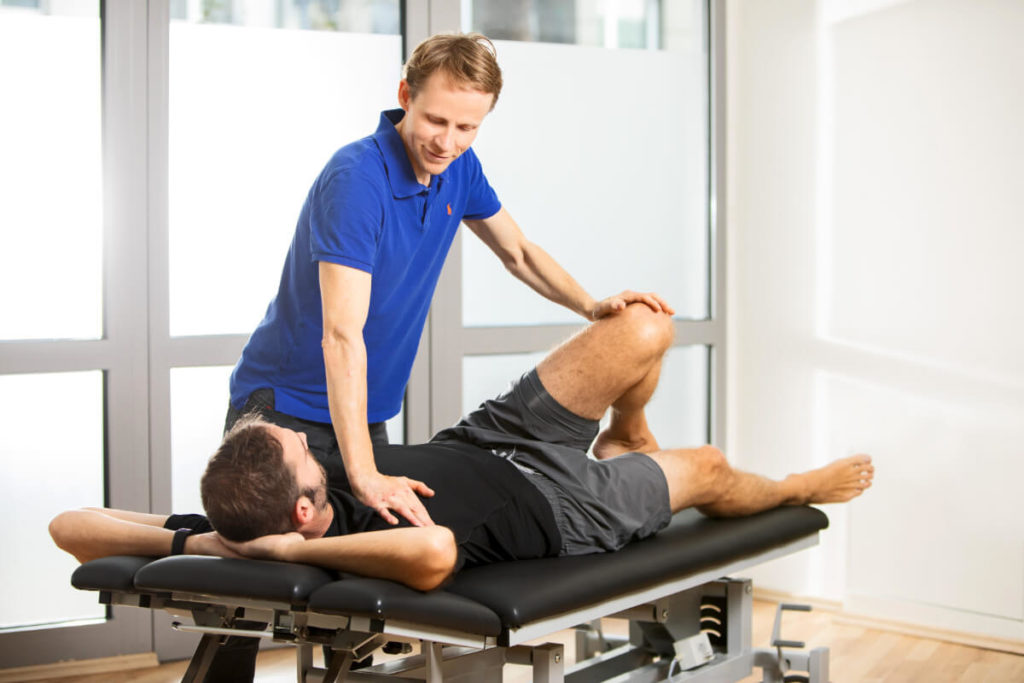
Osteopathy for adults
Our osteopathic treatments aim to stimulate and support the body’s own healing and regeneration. Because our practice addresses your specific problems individually, adults of all ages can benefit from our treatments.
Due to previous injuries, degeneration, poor posture, lack of mobility or overuse injury, impaired function can take place thereby potentially triggering acute or chronic pain. Our body tries to compensate for such pain-triggering stimuli with the aim of reducing the pain, however if the stimulus lasts too long or the compensation pattern breaks down, pain will manifest.
In our osteopathic practice, we observe impaired function and pain in adults on a daily basis, mainly resulting from poor posture, lack of movement or pathological movement patterns that develop through increasingly sedentary work or weak postural muscles. For osteopathic therapists, the first step is to release any restrictions and dysfunction, thereby reducing the pain. In our practice, however, we consider it essential to find long-term and thus sustainable solutions for our patients’ pain. In order to treat mechanical disorders efficiently and effectively long term, we do not limit our services to osteopathy alone, but rather combine osteopathy with targeted rehabilitative exercises that our patients can perform at home as an adjunct to their osteopathic treatment. Additionally, as soon as our patients have obtained significant symptomatic improvement, we strongly recommend the commencement of rehabilitation focused Reformer Pilates through our Partners at Pilates am Zoo Düsseldorf with the aim of achieving long-term symptomatic relief.
The aim of our holistic approach within our osteopathic practice is to show our patients how they can help themselves in the long term – and we accompany them in this. We want to prevent a therapeutic dependency from developing through a sole focus on osteopathy, which is why we work on long-term solutions that the patient can achieve themselves. We want to empower our patients to become symptom-free and non-dependent on our therapy. We consider this approach to be the most sustainable approach long term.
Due to legal regulations, neither specific illnesses can be listed nor a guarantee of symptomatic relief or improvement of your complaints can be made, as this is seen from the legislator as a promise of a cure.



